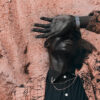Mr Paterson, our journal is deeply thankful to have the chance to have this talk with a personality like you, first of all. Most Italian readers don’t know the "Behind-the-scenes" people that work hard to make the Stars shine brighter. You are certainly one of the most acclaimed of those people in many artistic fields. This little – and brief – introduction was needed to ask for my first question. How did it happen that you fell in love with theatre? You ask how I fell in love with theater. I believe so much of my success as a choreographer…
Per continuare con la lettura, è necessario ABBONARSI o effettuare il Log-in. Grazie!



